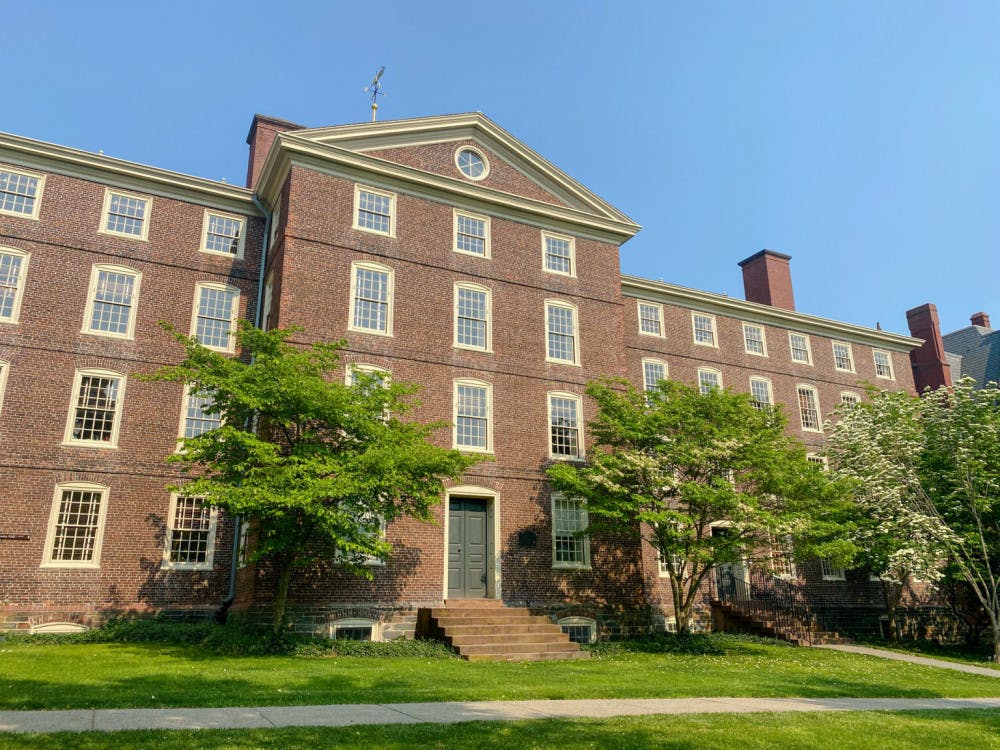The University will pay $684,000 and revise its policies as part of an Aug. 10 settlement with the U.S. Department of Justice after the DOJ found that Brown denied readmission to certain students on medical leaves of absence due to mental health concerns, according to the settlement.
The payment will be used as compensation for students wrongly denied readmission between fall 2012 and spring 2017.
According to the settlement, the DOJ found in an investigation and compliance review that the University’s leave-taking policies and procedures related to mental health concerns violated Title III of the Americans with Disabilities Act of 1990, which prohibits “discrimination by places of public accommodation against individuals on the basis of disability.” The University will be required to make “reasonable modifications” to increase accessibility as part of the settlement.
“Students with disabilities deserve access to equal opportunity to help ensure that they can achieve their educational goals," Assistant Attorney General Kristen Clarke for the DOJ’s Civil Rights Division said in a press release. “The Justice Department is committed to ensuring that colleges and universities do not exclude students on the basis of their disability or because they took time to receive the treatment they needed to thrive.”
The University first received notice of an inquiry into its medical leave taking policies for students with mental health concerns from the District of Rhode Island’s United States Attorney’s Office in January 2017, Cass Cliatt, senior vice president for communications, wrote in an email to The Herald.
The DOJ investigation and compliance review focused on the University’s undergraduate medical leave readmission policies that were in effect from five to nine years ago. These policies have since undergone “comprehensive changes,” Cliatt wrote, particularly surrounding “communication with students during the leave process as well as with clinicians who may be treating students during medical leaves.”
“While we are confident that our prior policies and procedures complied with federal law, we believe that today’s settlement offers a more productive resolution than a protracted litigation process that would require financial and time investments that are better reserved for supporting student success on campus,” Cliatt wrote.
The DOJ outlined three main conclusions of its investigation in the settlement agreement.
Following its investigation, the DOJ contends that the University denied certain undergraduates access to the University’s services on the basis of disability by denying their readmission applications from medical leaves of absence, even when students met all requirements for readmission and despite the conclusions reached by their treatment providers.
The DOJ also found that the University “failed to reasonably modify” a requirement that students take at least two semesters of medical leave for mental health, barring them from returning earlier even if they satisfied all other requirements.
Finally, the DOJ found that the University’s eligibility criteria to return “screened out” students with mental health disabilities “from fully and equally enjoying” Brown’s services.
The University “categorically denies” that it violated Title III of the ADA and “expressly denies liability” of all allegations, according to the settlement.
As part of the settlement, the University has agreed to change its procedures to better accommodate diverse accessibility needs, pledging that it would “not deny” any student services on the basis of ability.
The University revised its policy to include an “individualized assessment” of each student seeking readmission, according to the settlement. Under this revised policy, any student on medical leave for mental health reasons can request early return and the University will consider “reasonable modification” to the two-semester requirement. Any student whose application is denied will be given a written explanation of the reasons and will have the opportunity to appeal and reapply.
Also as part of the settlement, the University will develop an ADA training for all faculty and staff who play a role in evaluation of students seeking to return from medical leave.
In addition, Brown must provide the DOJ with semiannual reports detailing any denials of student requests to return from mental health leaves and including the readmission application, provider letters, the denial letter and any appeal applications and decisions.
“The policies that Brown has agreed to implement should serve as a timely reminder to other colleges and universities to ensure that their medical leave policies must not discriminate against students with mental health disabilities,” Richard Myrus, acting United States attorney for the District of Rhode Island, said in the DOJ press release.
Cliatt emphasized that the University reviews students’ requests to return from leave on a rolling basis “to ensure timely decisions,” and that 98.1 percent of students who have applied to return from leave since the 2016–17 academic year were granted readmission.
The University launched a comprehensive review of its medical leave policies based on student input and an assessment of best practices in August 2017, Cliatt wrote. “The resulting changes enhanced the ability of students to attend to their health and well-being while away from the rigors of study, while providing clear and consistent guidelines for seeking a return to campus.”
In 2014, students expressed concerns regarding the University’s mental health-related medical leave policies in a public forum facilitated by the Undergraduate Council of Students. Most notably, students voiced issues regarding the University’s timeline for readmission from leave — with a committee reviewing cases twice per year — as well as its alleged lack of communication with students on leave, The Herald previously reported.
In addition, some students noted a lack of transparency and support in the readmission process following leaves of absence taken due to mental health-related hospitalization. In some cases, the University’s process of reviewing students’ personal statements and letters from medical professionals extended students’ leaves beyond initial expectations.
“The University’s policies as they stand today reflect our deep commitment to supporting students, including and especially in moments of challenge, as they work toward successful completion of their Brown degrees,” Cliatt wrote. Moving forward, the University “remains dedicated to supporting students throughout their education at Brown.”

Jack Walker served as senior editor of multimedia, social media and post- magazine for The Herald’s 132nd Editorial Board. Jack is an archaeology and literary arts concentrator from Thurmont, Maryland who previously covered the Grad School and staff and student labor beats.





